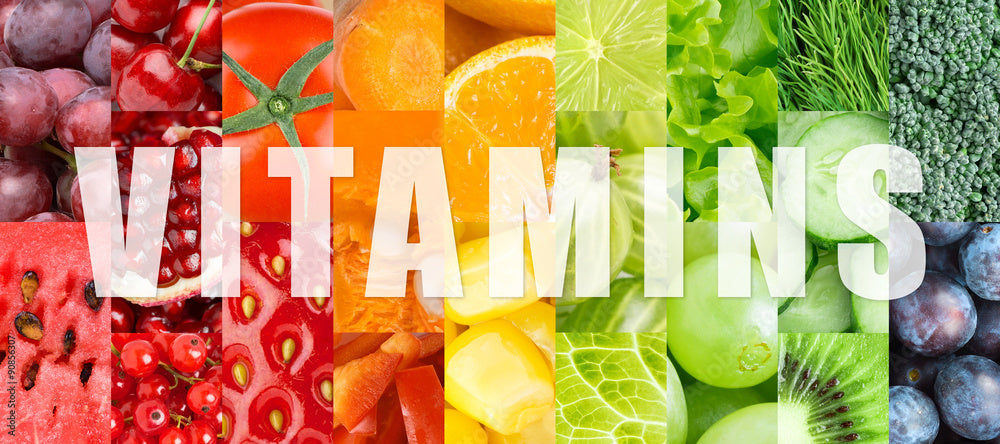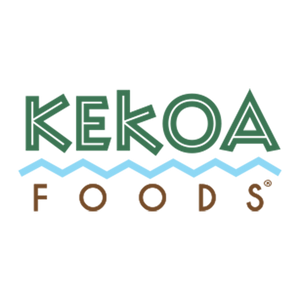
As a parent, you want to provide the best start for your baby's development, and essential vitamins play a crucial role in supporting their growth, immunity, and overall well-being.
While most of us know we want to provide our baby with the best vitamins possible to support their overall growth, knowing which vitamins and the specific foods they’re in can get overwhelming.
During their early years, babies have specific nutritional needs to support rapid growth and development. What follows is a list of essential vitamins for your baby's development. We describe why each is important, and we’ve tried to provide you with practical tips to ensure your babies receive adequate amounts of these vital nutrients.
Vitamin A
Vitamin A is essential for your baby's vision, immune system, and healthy skin. It plays a vital role in maintaining healthy tissues and supports the development of the eyes. Including orange and yellow fruits and vegetables like carrots, sweet potatoes, and mangoes in your baby's diet can provide a rich source of vitamin A (1).
Vitamin D
Vitamin D is crucial for your baby's bone development and calcium absorption. Sun exposure is a natural source of vitamin D, but during early infancy, pediatricians often recommend vitamin D supplements of 400 IU daily (2). Speak to your pediatrician about whether your baby is receiving enough vitamin D.
Vitamin C
Vitamin C supports your baby's immune system and aids in the absorption of iron from plant-based foods. Citrus fruits like oranges, strawberries, and kiwis are excellent sources of vitamin C. Introducing these fruits and vegetables to your baby's diet can help boost their vitamin C intake (3). Our Mango Paprika recipe contributes meets 70% of the Recommended Dietary Allowance (RDA) for vitamin C.
Vitamin E
Vitamin E is an antioxidant that protects your baby's cells from damage. It supports their immune system and helps maintain healthy skin. Nuts, seeds, and vegetable oils are good sources of vitamin E. For babies with nut allergies, vegetable oils like sunflower oil can be used as an alternative (4).
Vitamin K
Vitamin K is essential for blood clotting and bone health. Babies are usually born with low levels of vitamin K, so it's common for healthcare providers to administer a vitamin K shot shortly after birth. Additionally, breast milk and formula provide adequate vitamin K to support your baby's needs (5).
B Vitamins
B vitamins, including B6, B12, thiamin, riboflavin, niacin, and folate, are essential for your baby's metabolism, nervous system, and overall growth. Breast milk and formula usually provide sufficient B vitamins for your baby's needs. As you introduce solid foods, grains, legumes, and green leafy vegetables can be excellent sources of these vitamins (6).
Iron
Although iron is a mineral, it is crucial for your baby's development. Iron supports their cognitive development and the formation of red blood cells. Breast milk and formula typically provide enough iron for the first six months. As you introduce solid foods, incorporate iron-rich options like lean meats, fortified cereals, and legumes (7).
Ensuring your baby receives adequate essential vitamins is essential for their optimal growth and development. By offering a diverse and balanced diet that includes a variety of fruits, vegetables, grains, and proteins, you can help meet their vitamin needs. While breast milk and formula offer a solid foundation of essential vitamins, introducing nutrient-rich solid foods as they grow will further support their overall health and well-being.
Our organic baby food products are full of healthy, clean ingredients and palate-expanding flavors your baby will love. These baby pouches include many of the vitamins mentioned above, and the key nutrients that are essential for growth and development in our babies’ developmental years. In fact, for infants, any of our more veggie-forward baby food pouches meet the RDA for vegetables.
As always, we recommend you consult with your pediatrician or a registered dietitian to address any specific nutritional concerns and to ensure your baby's unique needs are met. Remember, with the right nutrition, you're laying the foundation for a healthy and thriving future for your little one.
References:
National Institutes of Health. (2021). Vitamin A. Retrieved from https://ods.od.nih.gov/factsheets/VitaminA-HealthProfessional/
Centers for Disease Control and Prevention. (2021). Vitamin D. Retrieved from https://www.cdc.gov/nutrition/infantandtoddlernutrition/vitamins-minerals/vitamin-d.html
National Institutes of Health. (2021). Vitamin C. Retrieved from https://ods.od.nih.gov/factsheets/VitaminC-HealthProfessional/
National Institutes of Health. (2021). Vitamin E. Retrieved from https://ods.od.nih.gov/factsheets/VitaminE-HealthProfessional/
National Institutes of Health. (2021). Vitamin K. Retrieved from https://ods.od.nih.gov/factsheets/VitaminK-HealthProfessional/
National Institutes of Health. (2021). B Vitamins. Retrieved from https://ods.od.nih.gov/factsheets/VitaminB6-HealthProfessional/
National Institutes of Health. (2021). Iron. Retrieved from https://ods.od.nih.gov/factsheets/Iron-HealthProfessional/
